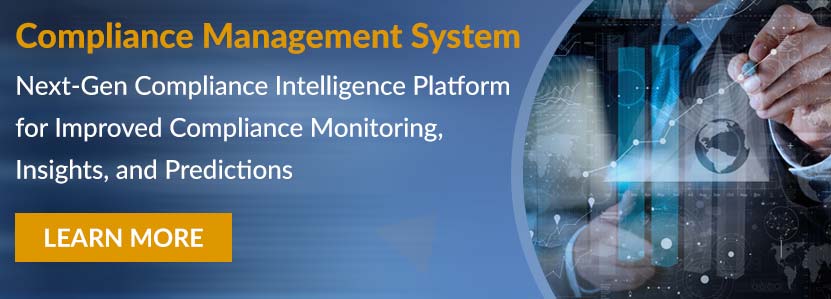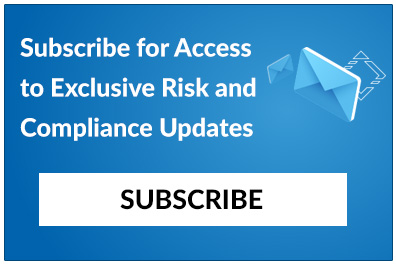Home/ Blog / How Modern Compliance Platforms Help Compliance Executives Succeed
Modern compliance solutions are focused on helping compliance managers deliver enhanced compliance performance in the financial sector. The costs associated with implementing compliance technology have decreased in the past five years, resulting in many more organizations being interested in adopting and implementing compliance technology. This means that understanding compliance technology will soon be essential for all compliance domain experts.
Some of the essential tasks and responsibilities of compliance Managers include:
- Identifying non-compliance and suspicious activities
- Implementing SOPs that ensure compliance
- Providing compliance advisory to other departments
- Leading investigations into noncompliance
- Suggesting and implementing corrective actions
- Analyzing compliance trends
Modern complaints technology can help organizations add compliance manager with each of these responsibilities and tasks in different ways.

Identify Noncompliance and Suspicious Activities
Identifying noncompliance within the organization is one of the core responsibilities of compliance managers. Organizations rely on their compliance managers and officers to ensure that the rest of the employees within the organization are only participating in activities that are compliant with the regulations that apply to the organization.
Implementing SOPs That Ensure Compliance
Compliance measures need to develop and then implement standard operating procedures that are fully compliant with the regulations that apply to the organization. The problem is that the compliance team does not have visibility into all the activities throughout the enterprise and thus ensuring compliance is a difficult task. A lot of modern compliance management focuses on providing employees with the right training and preparing employees periodically because there is no other way to ensure compliance.
Modern compliance platforms help the compliance team in two different ways. They improve the way an organization provides trainings and learning to its employees by providing a central platform that acts as a learning management system. Secondly, as compliance platforms are monitoring the activities throughout the organization, they are also an effective way of monitoring compliance levels and implementing SOPs that deliver results.
Providing Compliance Advisory to Other Departments
The compliance team is also responsible for providing advisory and consultancy to other departments. This means working closely video employees from other departments and helping them create strategies and plans that fulfill all compliance requirements. A common problem faced by compliance teams is that the other Department may not fully grasp the compliance ramifications of their actions.
Compliance management platforms solve this problem by providing everyone visibility into not just the activity they are performing but also how it interacts with other activities and the compliance framework. Instead of simply getting a snippet about the compliance requirements, stakeholders throughout the organization can easily see the impact of the activities on the compliance management platform.
A unified compliance platform also makes it easy for the compliance team to create and track activities for the other departments and consolidate all the discussions about the compliance activities under one place which then acts as a knowledge base, helping the whole organization manage compliance.
Modern compliance solutions are focused on helping compliance managers deliver enhanced compliance performance in the financial sector. Share on XLeading Investigations into Noncompliance
Compliance managers are not just responsible for discovering noncompliance, they also need to investigate when and where the noncompliance occurred and how it can be prevented from occurring again. This means going through all the documentation and sometimes it may even require talking with all the employees involved in the noncompliant activity to discover the source of the issue.
Compliance management platforms keep a log of actions taken by all employees. This means that when a compliance issue occurs, not only does the compliance team get notified about its existence faster, but they can also see when and where the issue occurred and who is responsible for it. This makes it easier for them to pinpoint the vulnerabilities in the compliance management framework and put in controls that can prevent similar problems from that point forward.
Suggesting and Implementing Corrective Actions
When noncompliance is detected, the responsibility to ensure that it is corrected and shared by the offending party and the compliance team, since the compliance team is responsible for enterprise-wide compliance. The compliance manager must not only sign off on the corrective actions to mitigate the issue but must also ensure that said corrective actions are implemented correctly and quickly.
Compliance management platforms provide a dashboard that lists all the compliance activities throughout the organization. This means that compliance managers can observe how corrective actions are being implemented in real-time and instantly get notified of any updates regarding corrective actions. This helps compliance managers ensure that the problem has been properly dealt with without requiring them to follow-up with the other stakeholders and ask for progress details multiple times.
Analyzing Compliance Trends
The compliance team also needs to evaluate compliance trends to determine their compliance strategy for the next year. This can be difficult when compliance is being managed manually because the compliance team must first collect the compliance metrics to analyze the trends.
Compliance technology simplifies the process by streamlining and automating it. Since all compliance activities are being managed under one platform, metrics exist for all compliance activities and can be easily monitored. More importantly, compliance platforms can also automate trend analysis, providing the compliance team with real-time insights and predictions.
Compliance technology can deliver incredible value for compliance teams, which in turn enables them to generate value for their organizations through improved compliance levels and lower compliance related losses. Interested in seeing how your organization can utilize compliance technology? Get in touch with our domain experts for a demonstration of the Predict360 Compliance Management solution.
Request a Demo
Complete the form below and our business team will be in touch to schedule a product demo.
By clicking ‘SUBMIT’ you agree to our Privacy Policy.




